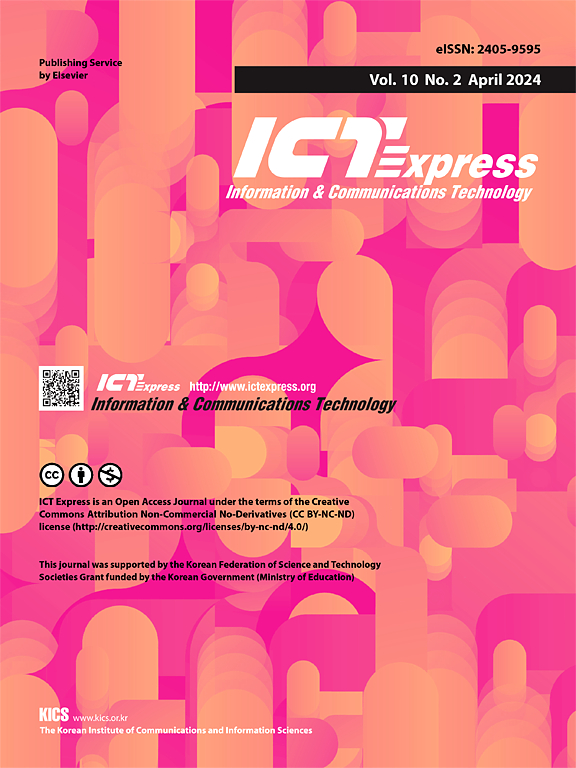Digital Twin-empowered intelligent computation offloading for edge computing in the era of 5G and beyond: A state-of-the-art survey
IF 4.2
3区 计算机科学
Q1 COMPUTER SCIENCE, INFORMATION SYSTEMS
引用次数: 0
Abstract
Edge computing has emerged as a promising paradigm for addressing the latency, bandwidth, and scalability challenges associated with traditional cloud-centric architectures. Computation offloading, the process of transferring computational tasks from edge devices to more powerful remote servers or cloud infrastructure, plays a crucial role in optimizing performance and resource utilization in edge computing systems. However, traditional computation offloading techniques often face limitations related to latency, network dependency, and scalability. In this survey, we explore the integration of digital twin (DT) technology into edge computing environments to empower intelligent computation offloading decisions. DTs, virtual representations of physical entities or systems that mirror their real-world counterparts, offer opportunities to enhance situational awareness, optimize resource allocation, and enable more informed decision-making at the edge. We provide a comprehensive overview of DTs empowered intelligent computation offloading, covering the fundamentals of DTs, traditional computation offloading techniques, and their limitations in edge computing. Additionally, we discuss how DTs can address these challenges and improve computation offloading strategies, along with practical applications and use cases across various domains. Finally, we identify open research challenges and opportunities for future exploration in this emerging field. Through this survey, we aim to provide researchers, practitioners, and stakeholders with insights into the potential of DTs to revolutionize computation offloading for edge computing and drive innovation in this rapidly evolving area.
在5G及以后的时代,为边缘计算提供数字孪生支持的智能计算卸载:一项最新调查
边缘计算已经成为解决与传统以云为中心的架构相关的延迟、带宽和可扩展性挑战的一种有前途的范例。计算卸载是将计算任务从边缘设备转移到更强大的远程服务器或云基础设施的过程,在优化边缘计算系统的性能和资源利用方面起着至关重要的作用。然而,传统的计算卸载技术经常面临与延迟、网络依赖性和可伸缩性相关的限制。在本调查中,我们探讨了将数字孪生(DT)技术集成到边缘计算环境中,以实现智能计算卸载决策。DTs是物理实体或系统的虚拟表示,反映了现实世界的对应对象,为增强态势感知、优化资源分配和在边缘实现更明智的决策提供了机会。我们提供了一个全面的概述,支持智能计算卸载的dt,涵盖了dt的基础知识,传统的计算卸载技术,以及它们在边缘计算中的局限性。此外,我们还讨论了dt如何应对这些挑战并改进计算卸载策略,以及跨各个领域的实际应用程序和用例。最后,我们确定了这一新兴领域未来探索的开放研究挑战和机遇。通过这项调查,我们的目标是为研究人员、从业者和利益相关者提供关于dt潜力的见解,以彻底改变边缘计算的计算卸载,并推动这一快速发展领域的创新。
本文章由计算机程序翻译,如有差异,请以英文原文为准。
求助全文
约1分钟内获得全文
求助全文
来源期刊

ICT Express
Multiple-
CiteScore
10.20
自引率
1.90%
发文量
167
审稿时长
35 weeks
期刊介绍:
The ICT Express journal published by the Korean Institute of Communications and Information Sciences (KICS) is an international, peer-reviewed research publication covering all aspects of information and communication technology. The journal aims to publish research that helps advance the theoretical and practical understanding of ICT convergence, platform technologies, communication networks, and device technologies. The technology advancement in information and communication technology (ICT) sector enables portable devices to be always connected while supporting high data rate, resulting in the recent popularity of smartphones that have a considerable impact in economic and social development.
 求助内容:
求助内容: 应助结果提醒方式:
应助结果提醒方式:


